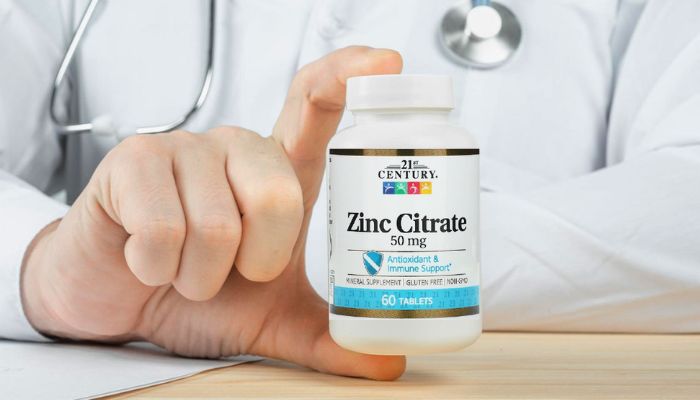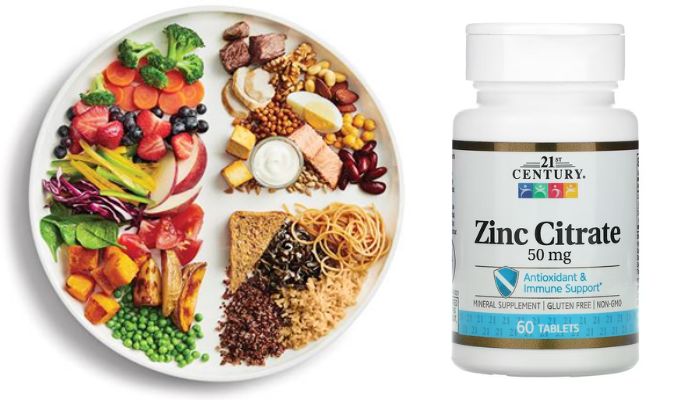
Incorporating Zinc Citrate into Your Daily Diet: Tips and Tricks
Zinc, an essential mineral crucial for immune function, wound healing, and protein synthesis, plays a significant role in maintaining overall health. Despite its importance, many people struggle with inadequate zinc intake, leading to issues like impaired immune response and slowed wound healing. Incorporating zinc citrate into your daily diet is a strategic move to ensure optimal zinc levels, supporting a healthy immune system and enhancing skin health.
Understanding Zinc Citrate and Its Importance
Zinc citrate, one of the several bioavailable forms of zinc, including zinc gluconate, zinc oxide, and zinc sulfate, is known for its high absorption rate. This makes it a preferred choice for supplements aimed at correcting deficiencies and supporting overall health. Zinc plays a pivotal role in numerous bodily functions, from enhancing immune function to supporting wound healing and maintaining skin health. Ensuring you have enough zinc in your diet is crucial for these processes to function optimally.
Identifying Zinc Deficiency
Before diving into how to incorporate more zinc into your diet, it’s essential to recognize the signs of zinc deficiency. Symptoms can include weakened immune response, delayed wound healing, hair loss, and a decrease in appetite. Human zinc deficiency can lead to more severe health issues, such as impaired nutrient absorption, insulin resistance, and even age-related macular degeneration. Understanding your body’s zinc needs can help you tailor your diet and supplementation to maintain optimal zinc status.
Dietary Sources of Zinc
The first step in incorporating more zinc into your diet is to identify and consume foods rich in this essential mineral. Zinc-rich foods include meat, shellfish, legumes, nuts, seeds, and dairy products. Fortified foods are also a good source of dietary zinc. Incorporating a variety of these foods into your meals can help increase your dietary zinc intake naturally.
Enhancing Zinc Absorption
Merely consuming zinc-rich foods may not be enough if your body struggles to absorb this nutrient efficiently. Certain factors can enhance zinc absorption:
- Pairing Zinc with Vitamin C: Vitamin C can increase the bioavailability of zinc, especially when zinc is consumed in plant-based forms that may have lower absorption rates due to phytates.
- Avoiding Foods that Bind Zinc: Some foods contain phytates and oxalates that can bind zinc, reducing its absorption. While it’s not necessary to eliminate these foods from your diet, consuming them separately from your zinc-rich meals can help.
- Cooking Methods: Certain cooking methods can reduce the phytate content in foods, enhancing zinc absorption. Soaking beans and grains before cooking them is a simple trick to improve zinc bioavailability.

Zinc Supplements: A Helpful Boost
For those unable to meet their zinc needs through diet alone, supplements can provide a helpful boost. Zinc citrate supplements are a popular choice due to their high absorption rate. When selecting a supplement, consider the following:
- Dosage: The amount of zinc you need can vary based on age, gender, and health status. It’s essential to choose a dosage that meets your specific needs without exceeding the upper intake levels to avoid excessive zinc intake.
- Form: Zinc citrate, zinc gluconate, and zinc picolinate are known for their high bioavailability. Choosing one of these forms can enhance the effectiveness of supplementation.
- Timing: Taking zinc supplements with food can reduce the risk of stomach upset and enhance absorption, though it’s important to avoid foods that may inhibit zinc uptake during these times.
Advanced Tips for Zinc Supplementation
While dietary sources are the best way to meet your zinc needs, supplementation can play a crucial role in achieving optimal zinc levels, especially for individuals with specific health conditions or dietary restrictions.
- Zinc Citrate Dosage: Understanding the correct dosage is vital. The recommended dietary allowance (RDA) for zinc varies by age, sex, and life stage. Adults generally require 8-11 mg of zinc per day, but this can vary. Always consult with a healthcare provider to determine the appropriate dosage for your needs, considering both dietary intake and supplements to avoid excessive zinc intake.
- Supplemental Zinc Citrate: When choosing a zinc supplement, consider zinc citrate for its superior absorption. However, the body can only absorb a certain amount of zinc at one time, so it may be more effective to take smaller doses throughout the day rather than a single large dose.

Balancing Zinc with Other Minerals
Zinc doesn’t work in isolation. Its absorption and function can be influenced by other minerals, notably copper.
- Copper-Zinc Balance: High doses of zinc can interfere with copper absorption, potentially leading to copper deficiency. When taking zinc supplements, especially for an extended period, it’s important to monitor your copper status and consider a copper supplement if necessary, under the guidance of a healthcare professional.
- Calcium and Iron Interactions: Just as zinc can affect copper absorption, it can also interact with calcium and iron. High levels of these minerals might compete with zinc for absorption. Balancing your intake of these minerals can help ensure that you’re absorbing enough zinc.
Lifestyle and Dietary Adjustments
Beyond supplementation, certain lifestyle and dietary adjustments can enhance your body’s zinc status:
- Increase Zinc Bioavailability: Incorporating foods that are high in zinc and adopting cooking methods that reduce phytate levels can increase zinc bioavailability. Fermenting, sprouting, and soaking grains and legumes can decrease phytates, making zinc more available for absorption.
- Mindful Eating Practices: Paying attention to the timing of zinc intake and the composition of your meals can help maximize absorption. For instance, consuming zinc-rich foods or supplements away from high-calcium foods or beverages can prevent potential absorption issues.
- Regular Health Check-ups: Monitoring your serum zinc levels through regular health check-ups can provide valuable insights into your zinc status, helping you adjust your diet and supplementation as needed.
Incorporating Zinc-Rich Foods
To maintain a zinc-rich diet, focus on incorporating a variety of zinc-rich foods:
- Meats and Seafood: Beef, pork, lamb, and shellfish (especially oysters) are excellent sources of zinc.
- Legumes and Nuts: Chickpeas, lentils, beans, and zinc-rich nuts like almonds and cashews can boost your zinc intake, especially for vegetarians and vegans.
- Dairy Products: Cheese and milk provide not only zinc but also calcium, which is essential for bone health.
- Fortified Foods: Breakfast cereals and breads often have added zinc, helping to meet dietary needs.
Conclusion
Achieving optimal zinc levels through diet, lifestyle adjustments, and supplementation where necessary is a multifaceted approach that requires awareness and consistency. By understanding the interactions between zinc and other nutrients, adopting strategies to enhance zinc absorption, and making informed choices about supplementation, you can support your body’s health and well-being effectively. Remember, the key to incorporating zinc citrate into your daily diet lies in balance, variety, and mindfulness towards your body’s unique needs.
